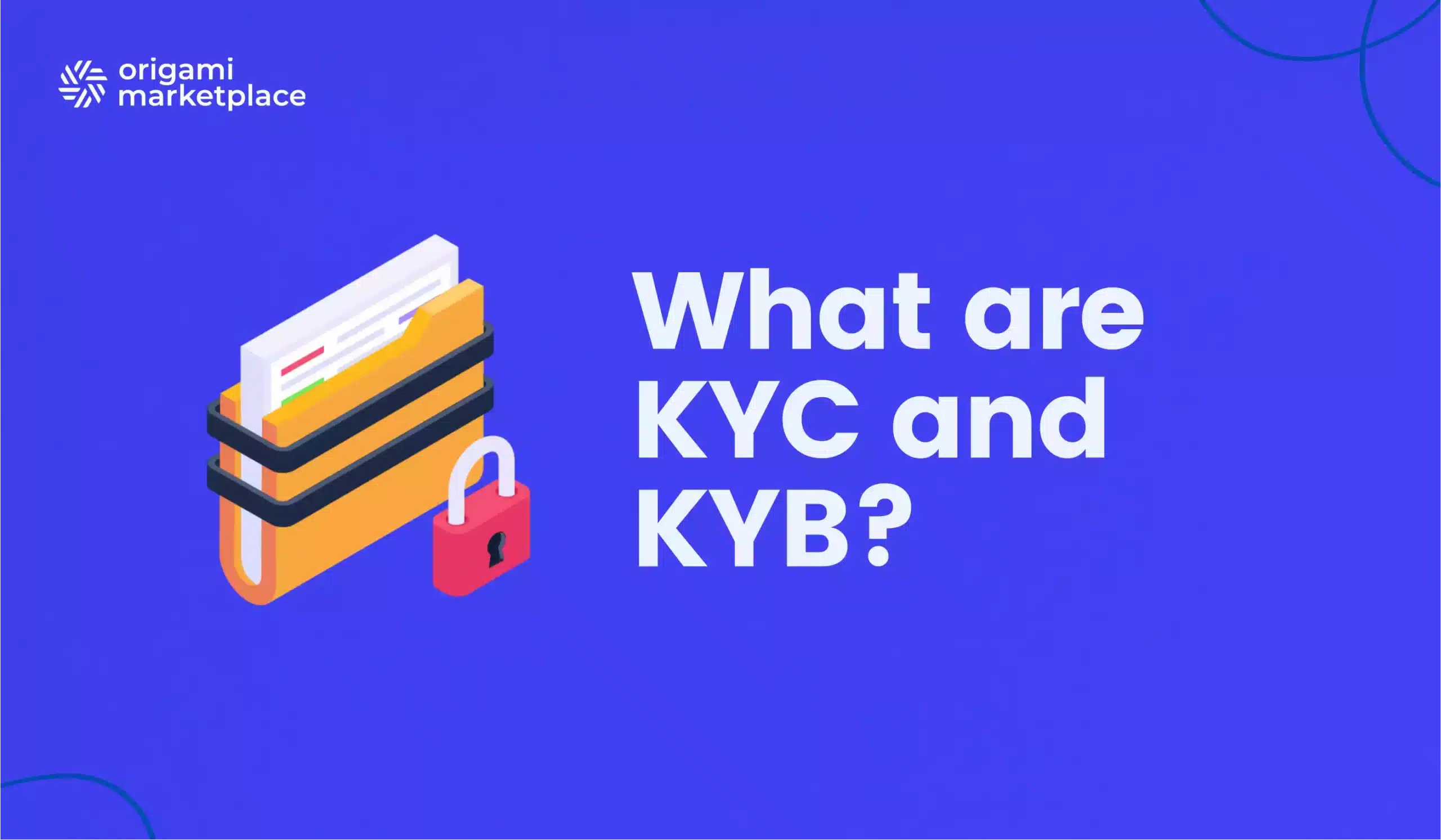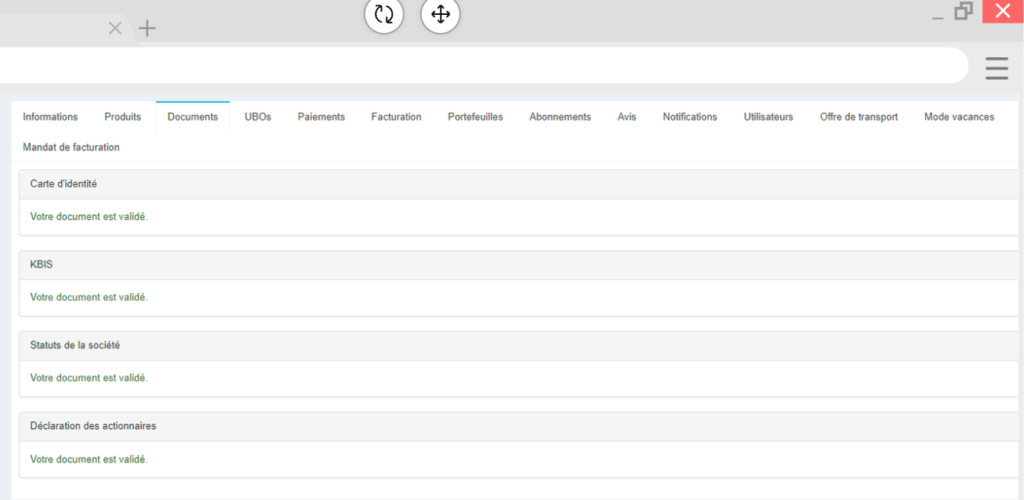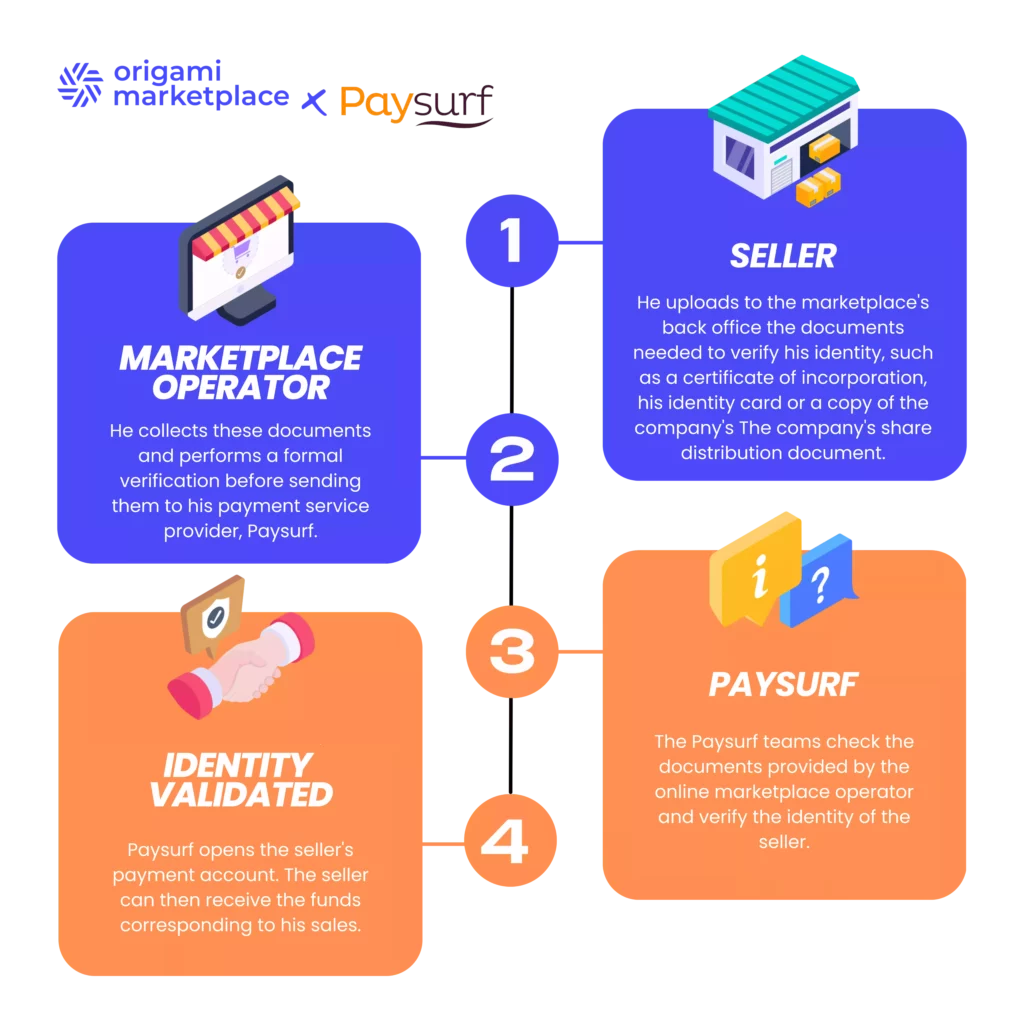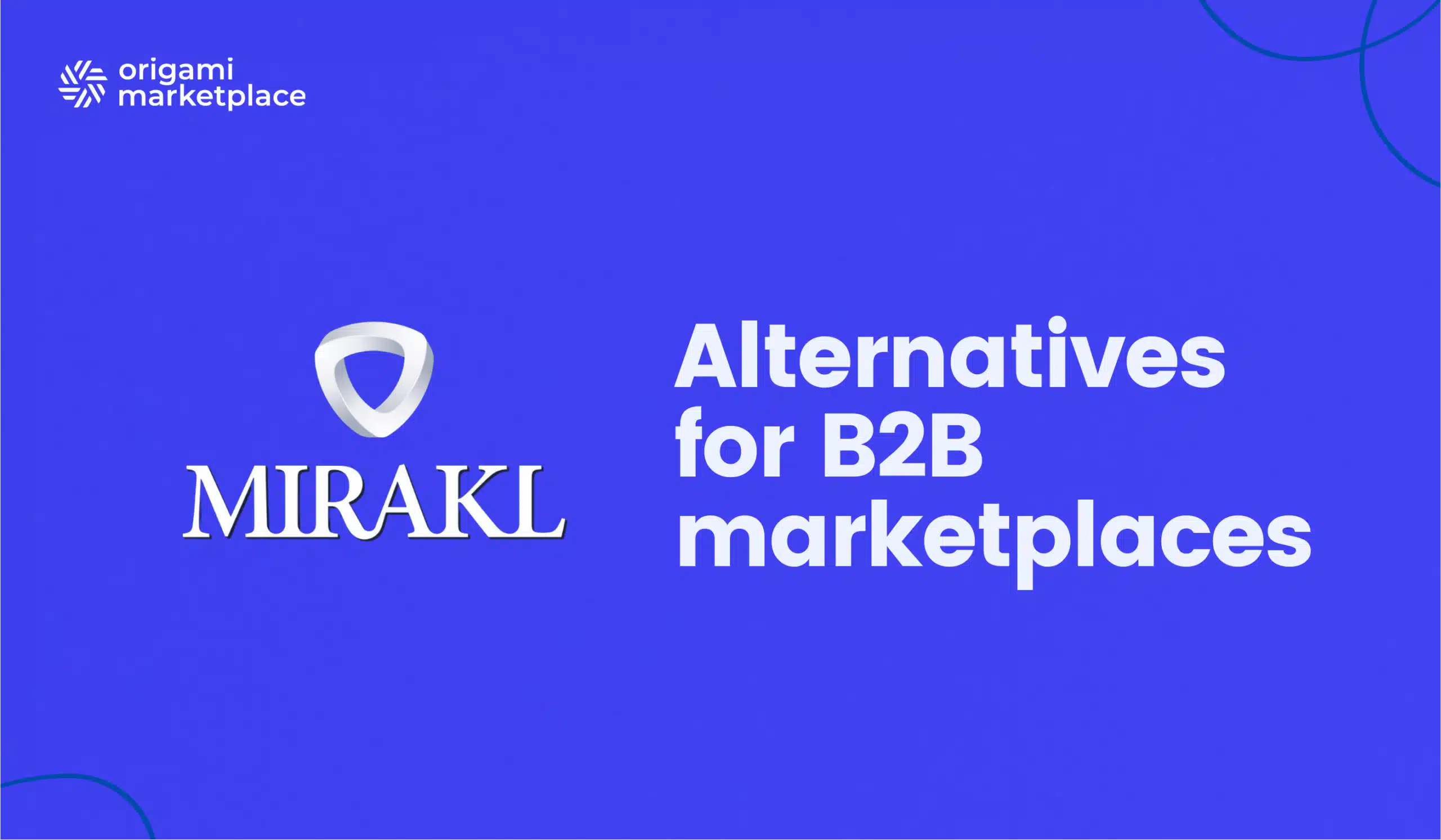Multi-vendor marketplace : What are KYC and KYB?
- Emeline Kerloch
- 6 minutes reading

Key points for understanding KYC and KYB .
1. Why is KYC required by law?
Primarily used for B2C and C2C multi-vendor marketplaces, the KYC process is a legal requirement in many countries. It involves verifying the identity of your users before they can complete transactions on your platform. It is designed to prevent and combat fraud, money laundering and terrorist financing.
- Fighting against Money Laundering (AML) and the Financing of Terrorism (CFT): In a world where all sales and transactions are virtual, we don’t always know who we’re dealing with. Collecting and analyzing KYC data enables online marketplace operators to identify their users, making it easier to detect and prevent illegal activity in compliance with global AML and CFT laws.
- Protect consumers: The KYC process helps create a safe environment for users by ensuring that other users and businesses exist and are legitimate.
- Accountability and Transparency: By collecting user identity data that is then analyzed by the PSP, KYC ensures transparency and accountability in the event of disputes.
2. The legal significance of KYB in securing B2B transactions.
The KYB verification process, which is essentially the same as the KYC process, focuses on identifying and verifying the organizations that use your platform, particularly in a B2B environment.
- Business compliance: KYB ensures that companies operating on your platform comply with local and international business laws and regulations.
- Anti-fraud: KYB helps identify fake or fraudulent businesses, minimizing risk to your platform and its users.
- Transparency in B2B transactions: By verifying the identity of companies, KYB facilitates transparent and secure business transactions.
For businesses, due diligence can enhance KYC/KYB checks. This involves a more in-depth analysis of a company’s management, allowing us to assess
- The solvency of the company: it’s better to accept vendors who will be able to fulfill their orders in the long term. The same goes for customers, who can check the value of their shopping carts and even authorize delayed or installment payments.
- Reputation and criminal record: Reputation and trust are essential to the proper functioning of a marketplace. For example, you don’t want to integrate a seller whose company has a criminal record. In addition, to create real trust in your platform, it’s recommended that you work with sellers who share the same business values that you promote through your platform.
- VAT control: For a number of years now, online marketplace operators have been required to provide the tax authorities and individual sellers with a document summarizing all transactions carried out on the marketplace. This helps to avoid “mistakes” by sellers in their VAT declarations.
Download our free marketplace specifications template.
Here you will find all the essential features to succeed in your C2C, B2C or B2B multi-vendor marketplace. This model provides a simple backlog to guide you through each step of your project.
3. How to implement KYC and KYB verification processes?

4. What documents are required for KYC / KYB verification?
For individuals, a dual identity check is often required, with one of the primary identity documents (ID card, passport or residence permit) plus a secondary identity document such as a driver’s license, carte vitale or bank card.
Please note: As a private individual, KYC verification is often invisible, as it takes place either at the “account verification” stage or at the checkout when you make a purchase. Using some payment methods may allow marketplaces to validate your KYC elements.
For businesses, the elements to be provided are (non-exhaustive list)
- Identity card of the legal representative and all shareholders holding at least 25% of the company’s shares
- A certificate of incorporation less than 3 months old
- The company’s share distribution document
- The company’s bank details.
5. Graphic summary in partnership with Paysurf.

Team tips 🎓
For a future online marketplace operator, it’s essential to implement identity verification systems such as KYC (Know Your Customer) and KYB (Know Your Business). Key points to consider:
- Why is KYC required by law?
- To prevent fraud, money laundering and terrorist financing.
- To ensure consumer protection and transparency.
- The legal importance of KYB in securing B2B transactions:
- Ensuring commercial compliance and combating fraud.
- Ensuring transparent and secure B2B transactions.
- How to implement KYC and KYB screening processes?
- Collect the necessary documents and send them to your PSP.
- Use SaaS solutions such as Origami Marketplace to simplify onboarding and document tracking.
- Documents Required for KYC/KYB Verification :
- ID, certificate of incorporation, share distribution, ORIAS registration, RIB, etc.
By adopting these processes, you will strengthen the reputation and trust surrounding your marketplace, while remaining compliant with regulatory requirements.
A brief summary of KYC and KYB?
👋 Future online marketplace operator!
Discover how the Origami Marketplace API and partner network can transform your business, regardless of size, with its innovative solution based on the marketplace model.
Related articles.



